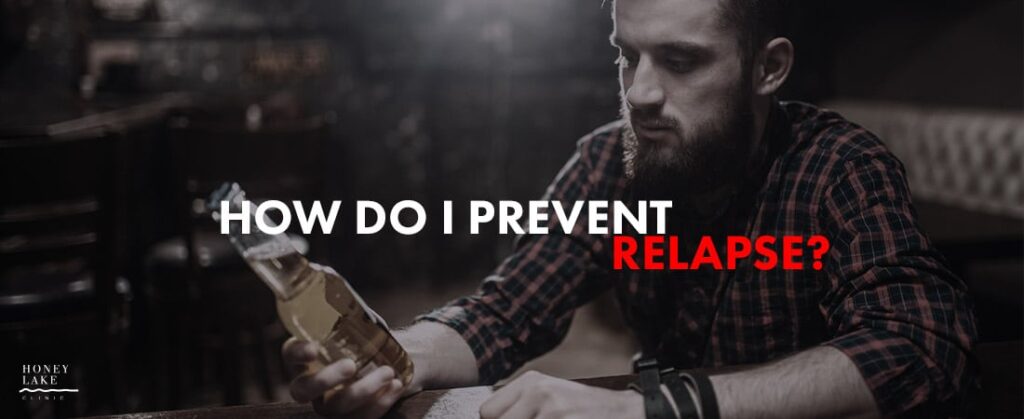How Do I Prevent Relapse?
Successfully completing drug or alcohol rehab is an accomplishment you should feel good about. Take a moment to acknowledge the hard work you’ve put in, and your willingness to make difficult changes in your life.
You should also recognize at this point that change is extremely difficult. Be forewarned: it takes a lot more work and perseverance to maintain your sobriety.
Are you reading this article because you’re considering treatment for substance abuse and/or addiction? We can help. Speak confidentially with a counselor right now at (844) 747-7772.
Treatment to Support System
Addiction treatment should be structured in such a way as to give you the support you need to exchange old habits and coping mechanisms for new healthier habits and a new way of life. Once these new routines are established and new schedules are built into your life, carrying these new disciplines into your life after rehab is imperative. Without a support structure in place, the chance of relapse increases exponentially.
Here are seven helpful tips to help you stay on track, living a healthier lifestyle:
1. Avoid Risky Situations and/or Triggers
Triggers are certain experiences that can prompt thought patterns or events that may lead to relapse. As a recovering addict, it’s important to recognize them in advance, the kind of risky situations you should avoid at all cost. Being with the wrong people, hanging out in the wrong places, or putting yourself in old situations can spell disaster. Instead, find new places, people, and hobbies that are in tune with your new lifestyle. Not sure where to start? Head to a local hiking trail. Join a book club. Volunteer in your community. The options are really limitless, and they’ll help you form a new normal routine that supports your recovery.
2. Establish a Daily Schedule
One of the best ways to continue the healthy structure you enjoyed in rehab is to create a daily schedule that supports your new lifestyle. Be sure to write it down. Just taking a moment for reflection over your schedule before starting your day will help immeasurably. Don’t forget to include time for exercise and meetings. If you have difficulty staying organized there are many mobile apps that can help you keep on track.
3. Prioritize Healthy Sleeping and Eating
Healthy eating and sleeping are essential to recovering addicts. Sleep deprivation has been linked to decreased cognitive functioning, negative moods, decreased productivity, and a variety of physical conditions. Establish a responsible bedtime and stick with it. Get into the habit of making healthy meals for yourself. What you eat can make a tremendous difference in how you feel.
4. Live in the Moment
The past is exactly that—in the past. Nothing you can do will change it. Most addicts will tell you that dwelling on the past, going back over mistakes you’ve made or replaying hurtful events in your life leads to negative thoughts which can set you up for relapse. Avoid the past by staying in the moment as much as possible. Have a strategy in place to deal with negative thoughts, feeling and emotions when they surface.
5. Develop a Support System
One of the best ways to steer clear of risky situations is to develop a strong and committed support system around you. As healing happens in community and not in isolation, you’ll be wise to assemble a three-legged stool of support—find an authentic church community to call home, a strong Christian therapist or counselor to talk to, and a support group to join.
6. Continue Individual Therapy
A component of that three-legged stool of support, individual therapy is vital in terms of recovery. A seasoned therapist is a mental health professional, trained to recognize signs, both positive and negative, of your struggle to establish your new sober life. Your therapist’s job is to be a committed listener and to advocate for your health and recovery.
7. Participate in Group Meetings
One of the best ways to ensure you will not relapse is to participate in 12-step meetings and share your recovery. Working with other addicts is a guaranteed way to keep you on your toes and in gratitude for the sobriety you have earned. 12-step meetings and other group meetings will enable you to let go of problems by sharing them in a caring environment.
It’s a Journey
Transitioning from drug and alcohol abuse to living a sober life is a challenge and does not happen overnight. One of the hallmarks of addiction is impatience and instant gratification. But changing your life takes time. As they say, “One day at a time.” Your recovery is a journey and not a destination.
Honey Lake Clinic—We Can Help
Substance abuse and addiction don’t happen in a vacuum. The path to recovery and wholeness involves getting to the root the problem. To get at underlying hurt and bring lasting healing takes a holistic—spirit, mind and body—approach to addiction diagnosis, management and treatment.
Honey Lake Clinic’s residential treatment program will give you the tools necessary for you to experience life beyond your addiction.
As you near completion of the residential portion of your recovery, members of your team can help you determine next steps. Honey Lake Clinic maintains a vital network of more than 300 nationally recognized step-down programs. We will assist you in finding the best fit for your particular needs.
At Honey Lake Clinic, our experienced doctors and staff strongly believe that faith-based treatment, encompassing spiritual, physical and mental health, will help our clients and their families bring spiritual power and clearer psychological understanding to their healing and recovery.
